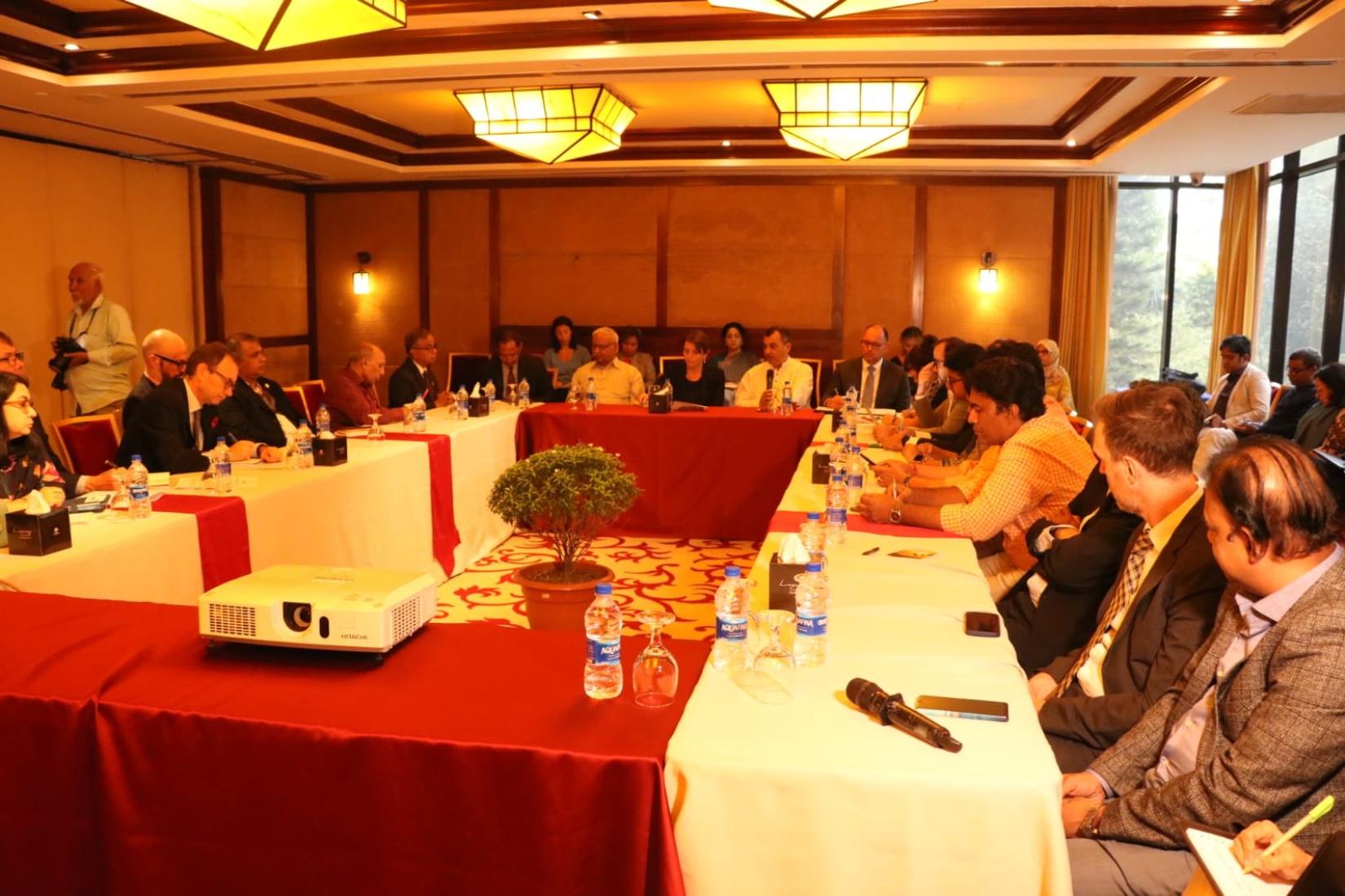Roundtable Discussion on Human Rights in Climate Change
৩০ অক্টোবর ২০২২

The UN in Bangladesh is an integral partner of Bangladesh in addressing climate change and finding sustainable solutions.
As COP 27 approaches, the urgency of reducing emissions and protecting the most vulnerable against the worst impact of climate change has never been stronger. Following a recent visit by Dr. Ian Fry, the Special Rapporteur for promotion and protection of Human rights in climate change a roundtable was organized by the UN in Bangladesh and the International Centre for Climate Change and Development (ICCCAD) to facilitate a dialogue on how best to the recommendations can support Bangladesh.
The event was attended by Ministry of Environment, Forest and Climate Change (MoEFCC), Ministry of Foreign Affairs (MoFA) as the line ministry for implementation of recommendations of human rights instruments, saw over 40 climate experts, civil society organizations working on climate change, UN agencies, development partners and members of the media gathered to discuss not just the Special Rapporteur report, but also propose concrete recommendations for the way forward.
The Special Rapporteur’s country visit to Bangladesh intended to assess how the adverse impacts of climate change affect the human rights of communities in vulnerable situations, to consider the consequences of these impacts on populations and to provide findings to the country and concrete suggestions for action to be considered by stakeholders in Bangladesh. This included such questions as how climate change is affecting the right to food, climate induced displacement, what measures are being taken to address the impact and how impacted population is participating in development of the policy framework on climate, protection of actors working on issues of climate change as well as right to land of displaced communities.
Bangladesh has been a long-term supporter of such a rights-based approach on climate change at the international level as well as having made some attempts to reflect this approach into national level policies. For the upcoming COP27 Climate Summit in Egypt, Bangladesh is already a leading voice when it comes to climate justice, for example through discussions on loss and damage. There is a wide range of policies and programs addressing the climate challenge at national level including the on-going work on SDG’s. However, policies and programs can continue to strengthen the rights-based approach.
The roundtable specifically focused on four broad areas of the Special Rapporteur’s report; the role of international financing & regional negotiations, the possibilities offered by new and existing policy frameworks, climate induced displacement, and strengthening mitigation alongside adaptation measures.
Five interventions preceded the informal discussions: Professor Saleemul Huq touched upon the significance of loss and damage for Bangladesh MP Saber Hossain Chowdhury referred to the recent increase in the temperature and the impact that what it will do the existence of human race unless addressedBangladesh Environmental Lawyers Association’s Rizwana Hasan emphasized the rights of resilient communities. ‘Resilience with rights and no resilience without rights should be our slogan’. Chakma King Raja Debasish Roy further emphasized that communities adapt but indigenous people must be given an opportunity to do so by being included in policy decisions. Finally the U.S. Ambassador Peter Haas discussed the need for inclusive planning and a vibrant civil society. He mentioned women and girls are disproportionately impacted by climate change. He also said the U.S. Strategy on Gender Equity and Equality highlights the climate crisis as a key factor affecting our ability to achieve gender policy goals.
A vibrant discussion followed the brief interventions by speakers, including interventions from various Ministries, Mr. Abul Kalam Azad, member of world Biodiversity commission, Ms. Fahmida Khatun from Center for Policy Dialogue, Ambassador of Sweden, among many others. Participants emphasized on government- civil society partnership, regional dimensions of river water distribution.
Gwyn Lewis, UN Resident Coordinator in Bangladesh concluded by stating that “climate justice and climate change are cross cutting issues and require a multi -sectoral approach in line with leaving no one behind. Inclusion of affected communities in finding solutions is key to sustainable solutions. The UN in Bangladesh is an integral partner of Bangladesh in addressing climate change and finding sustainable solutions”.








